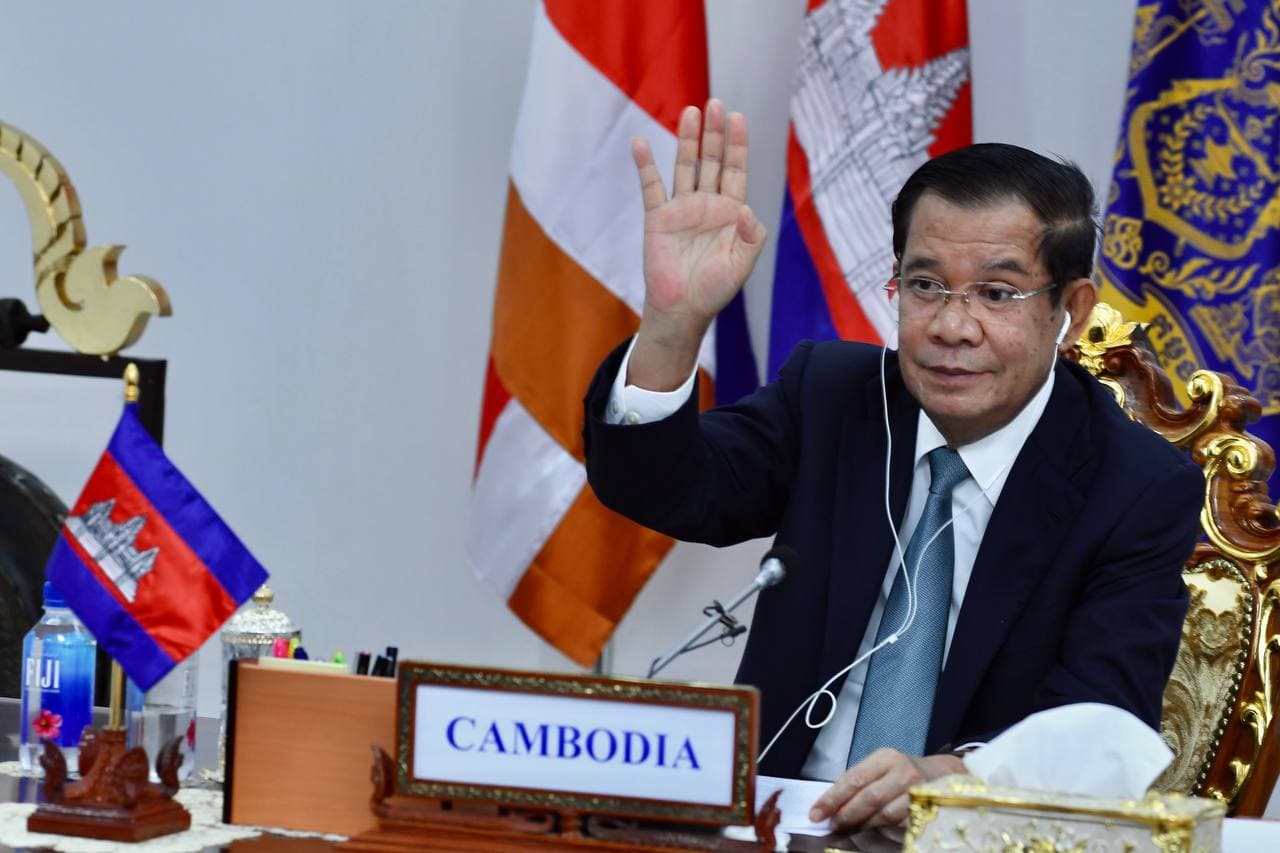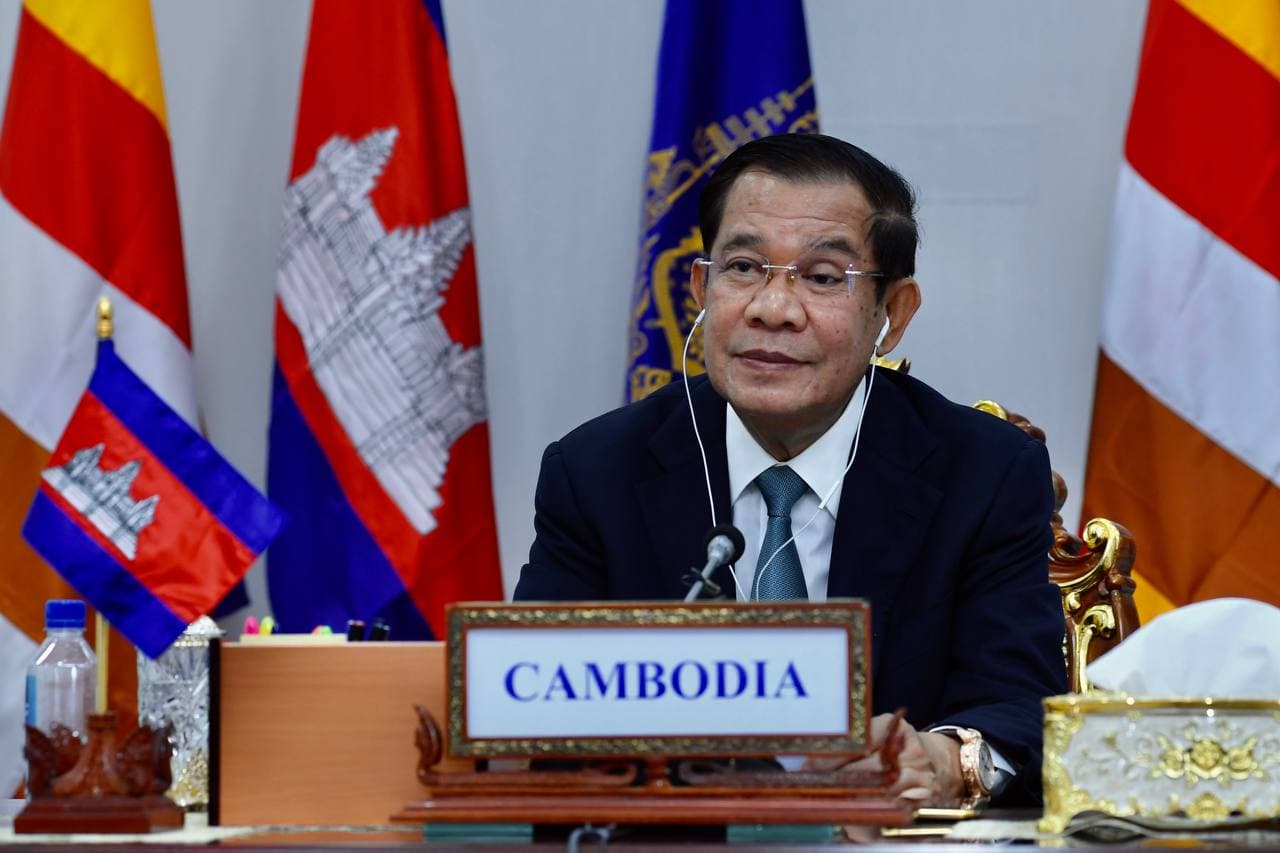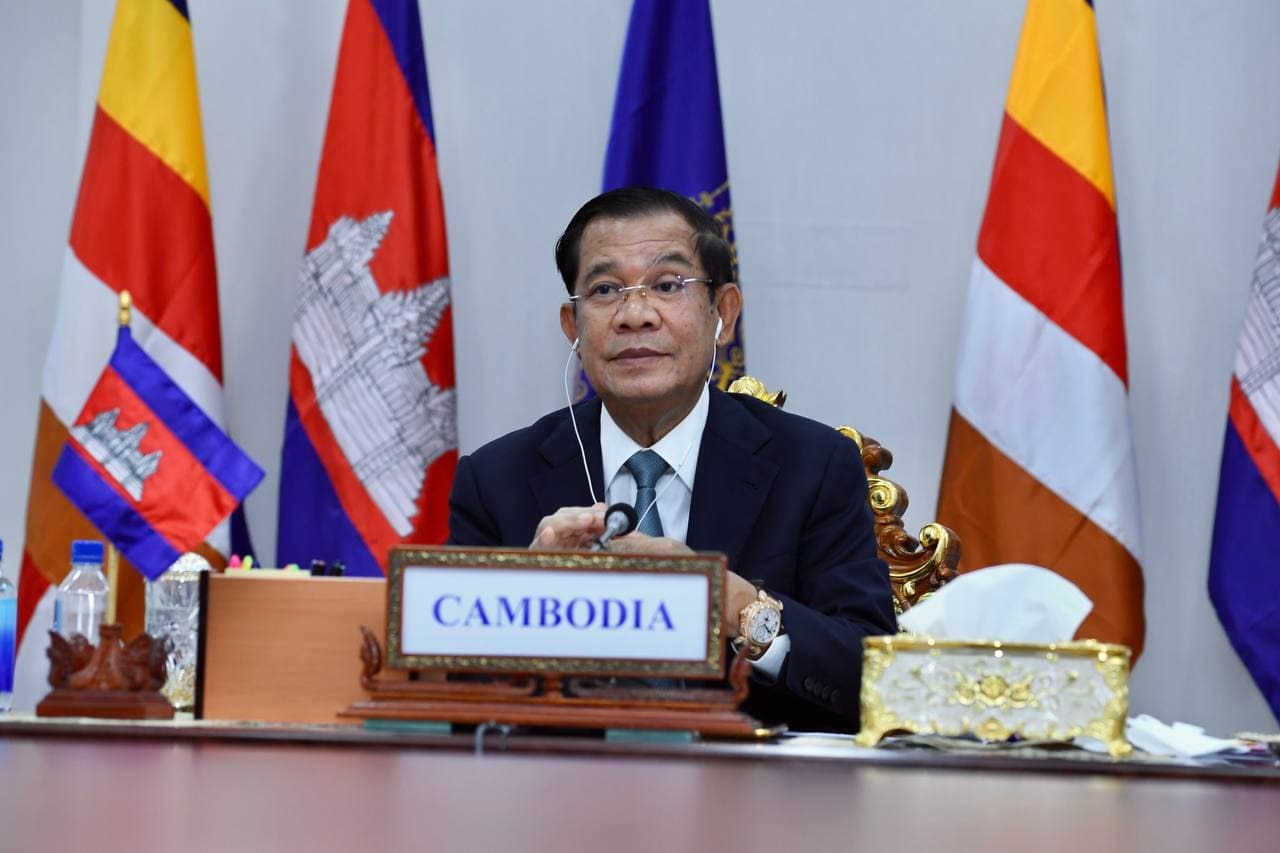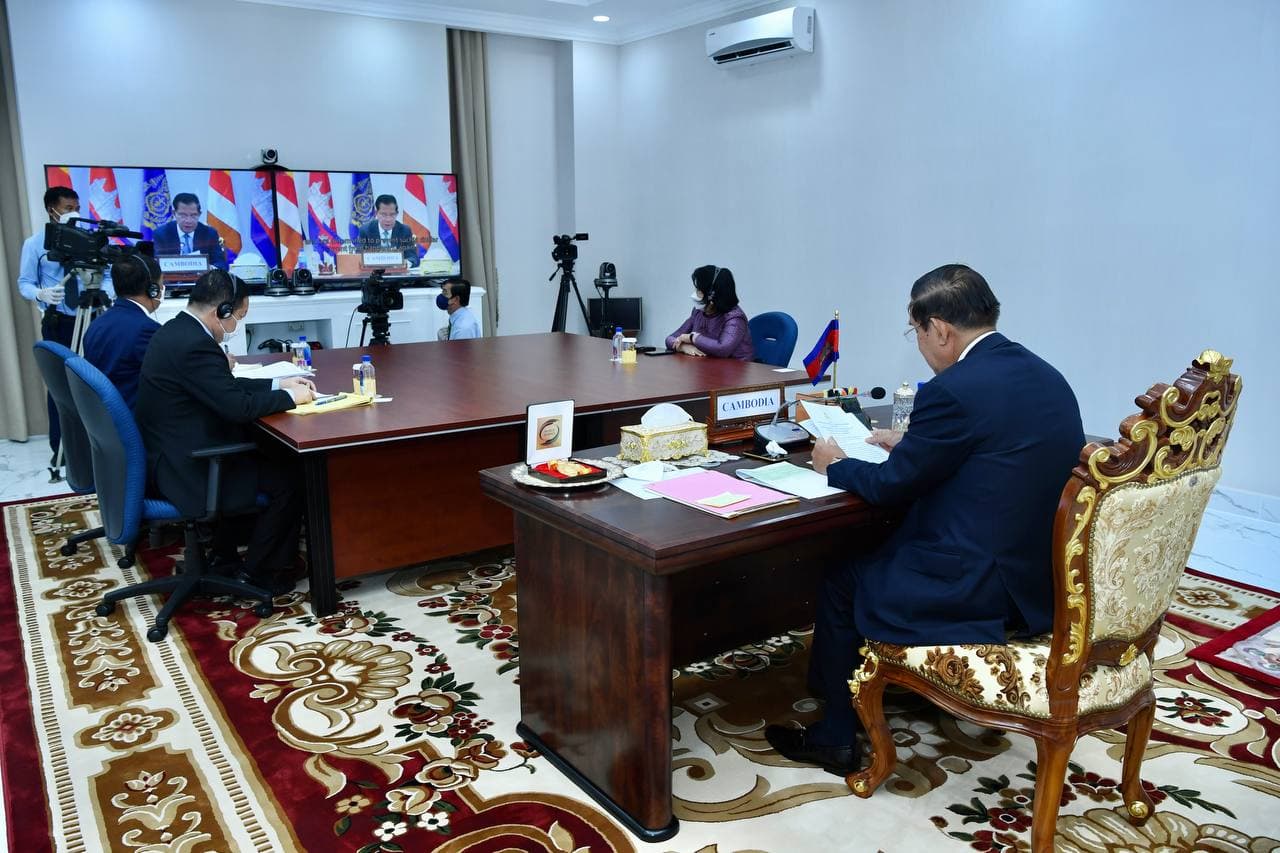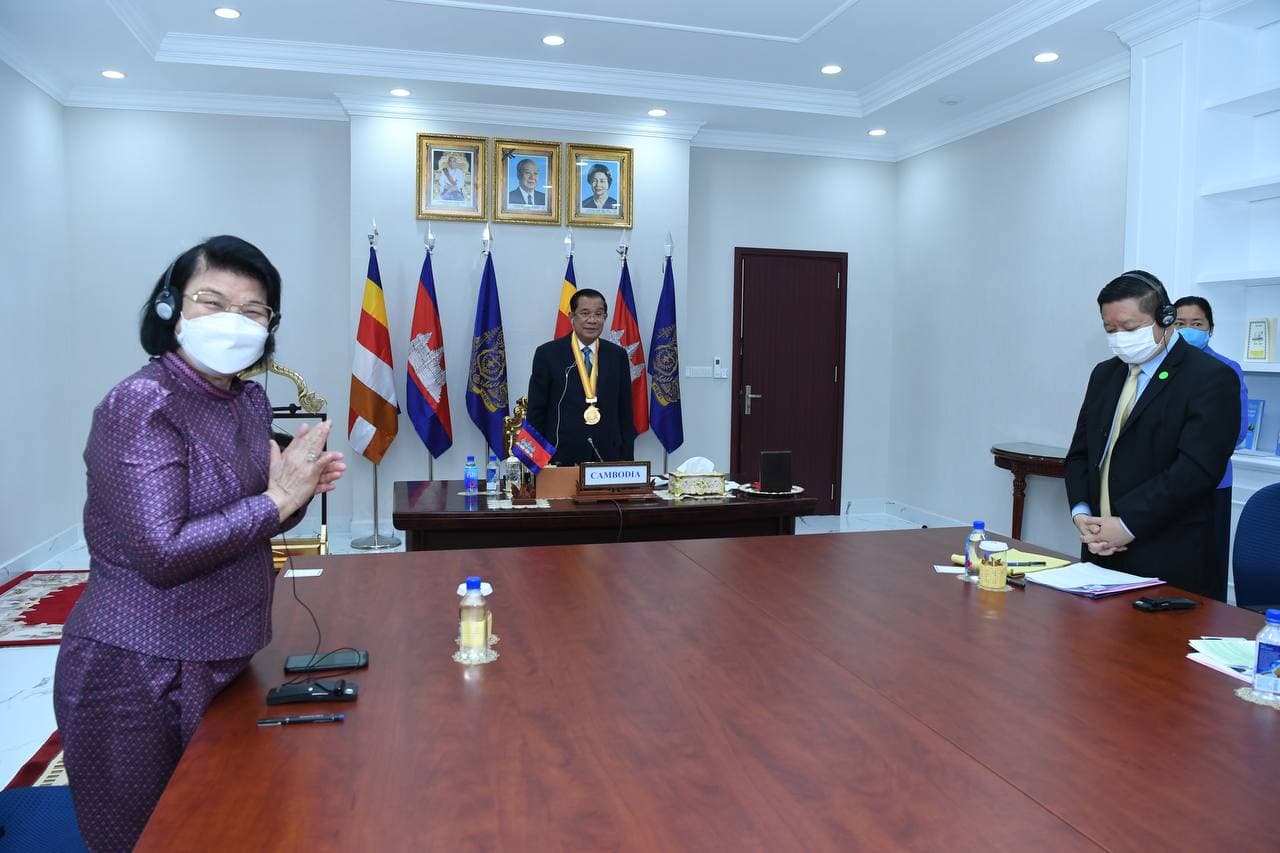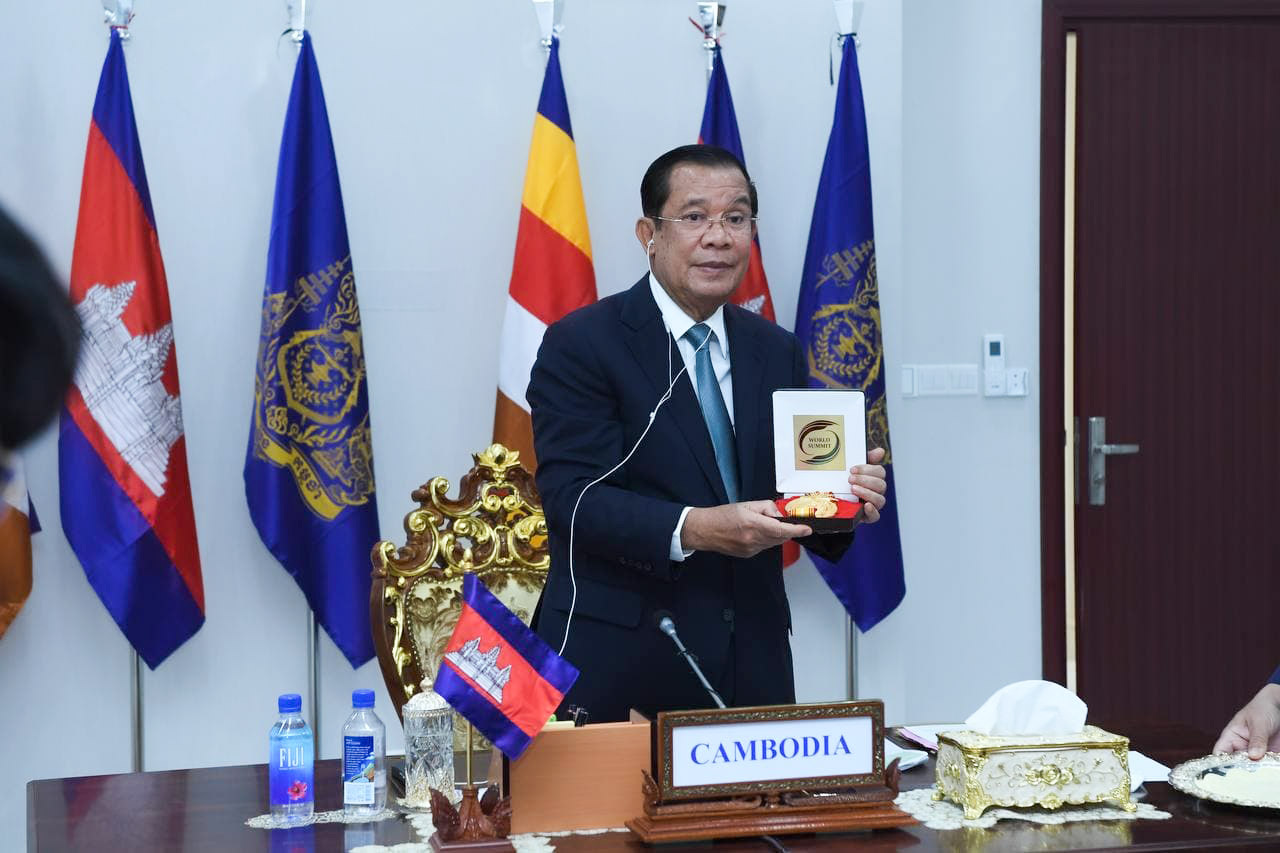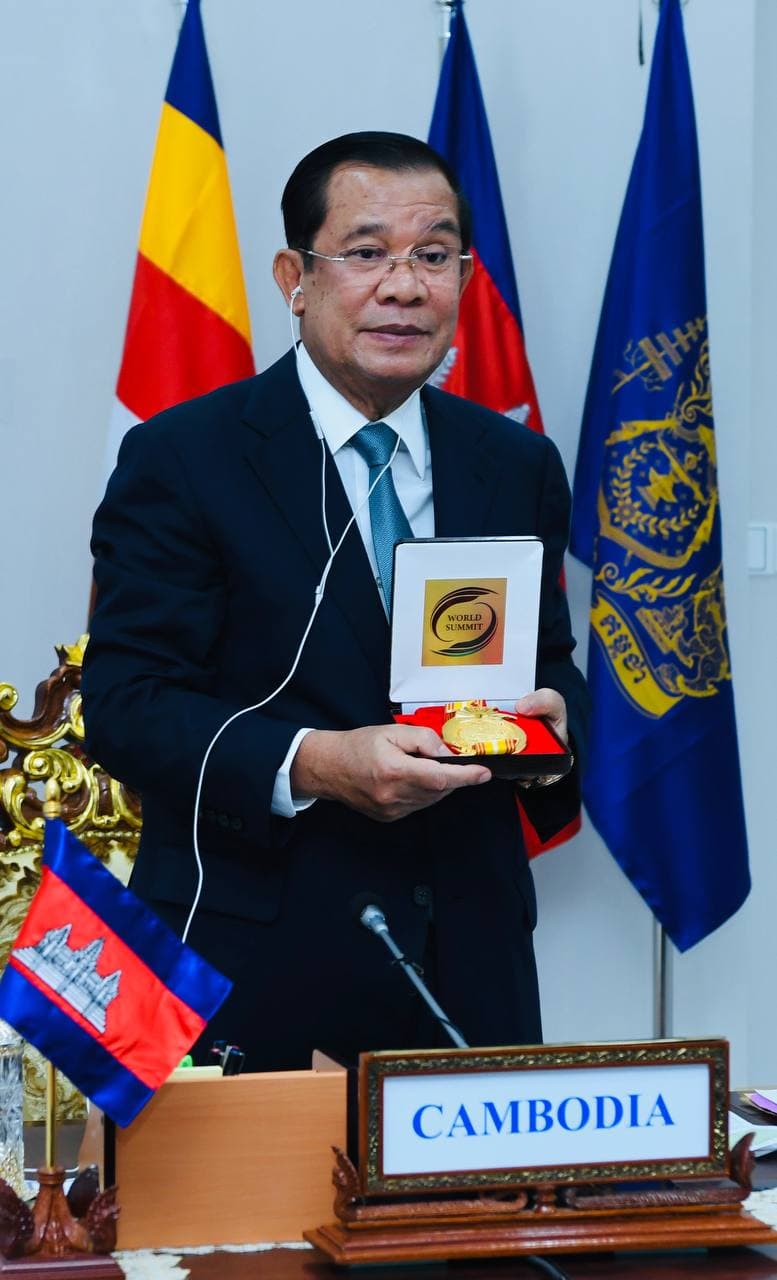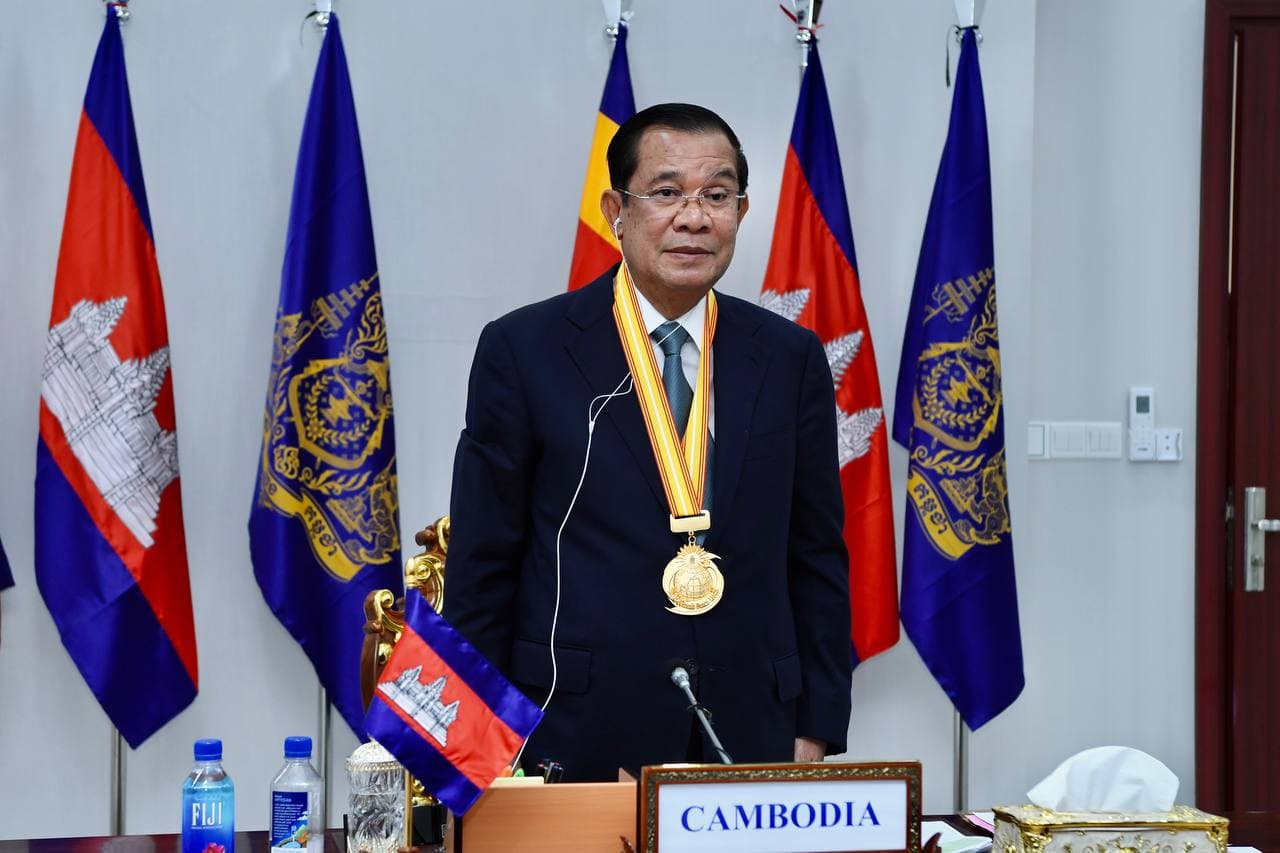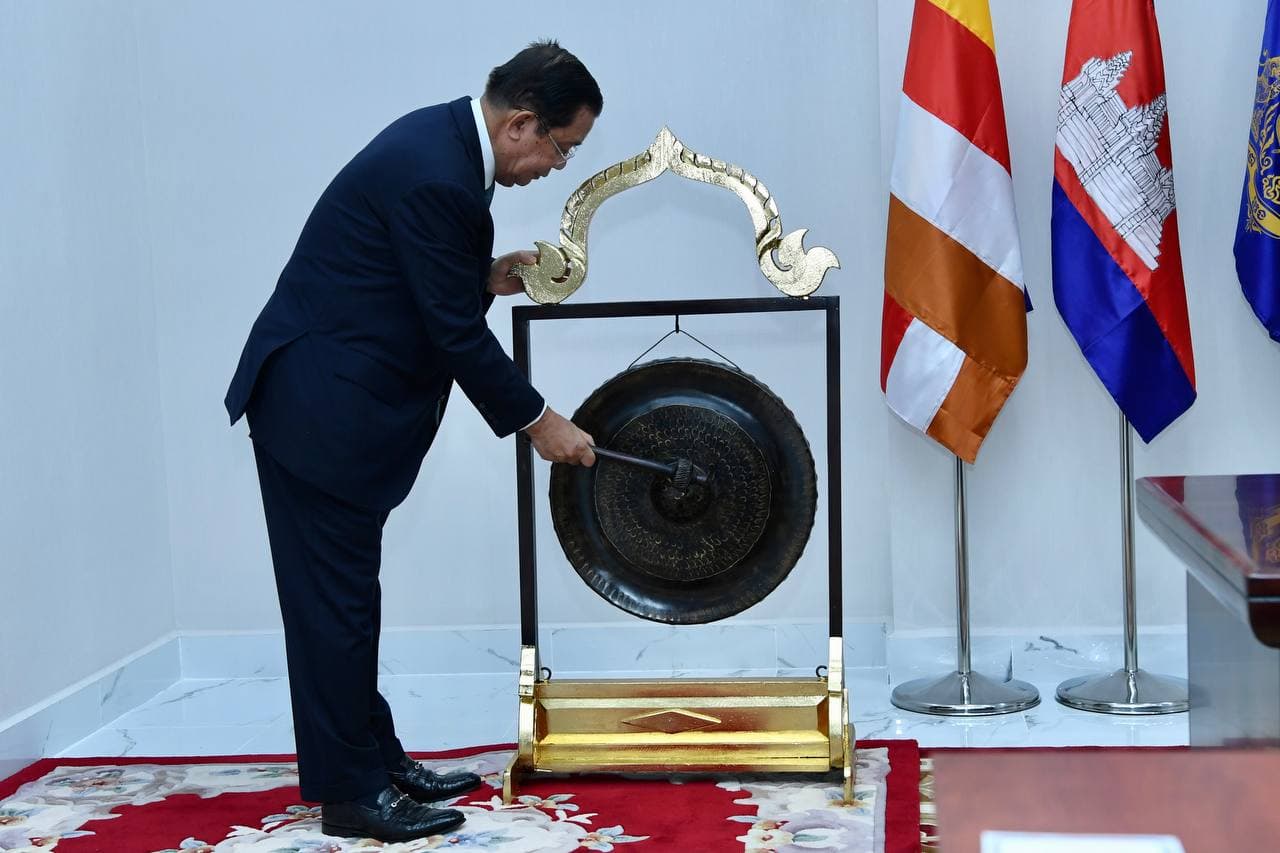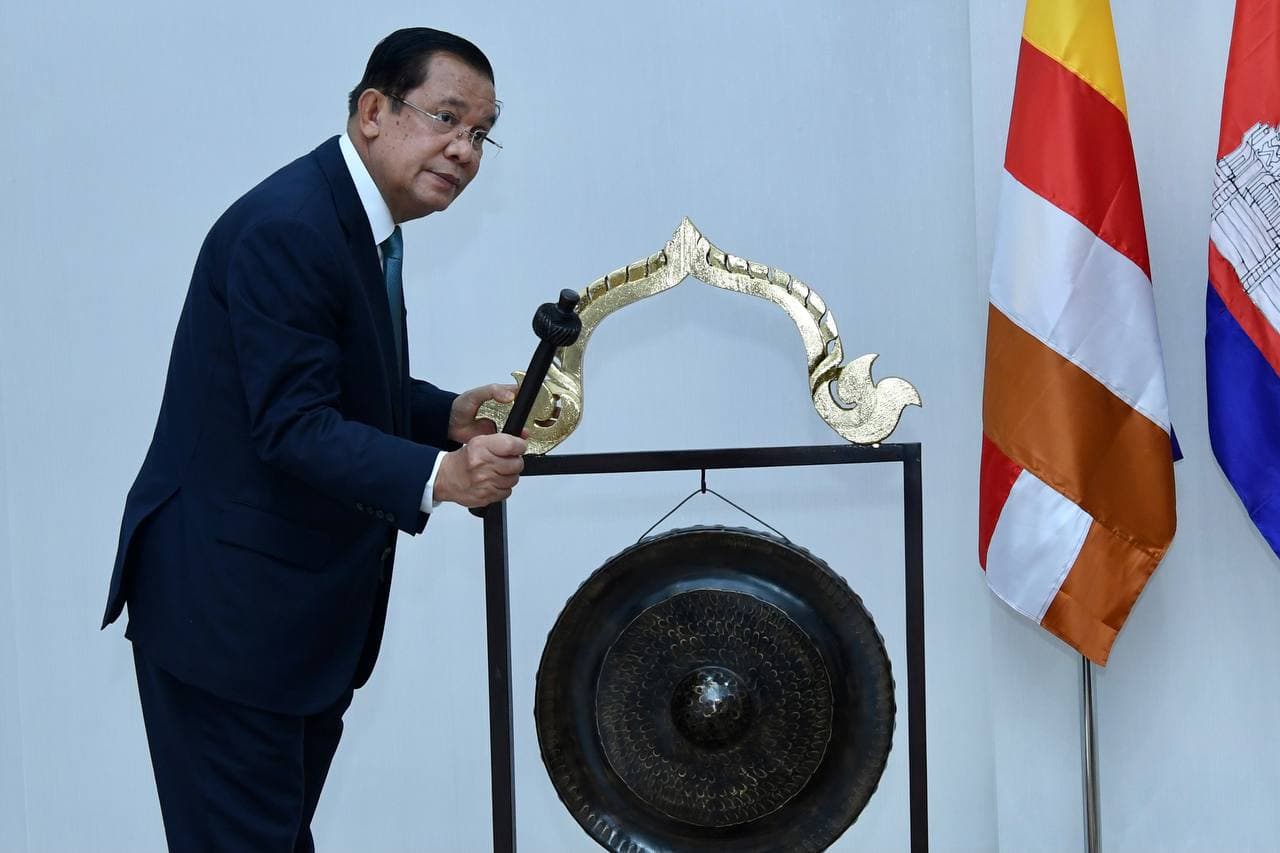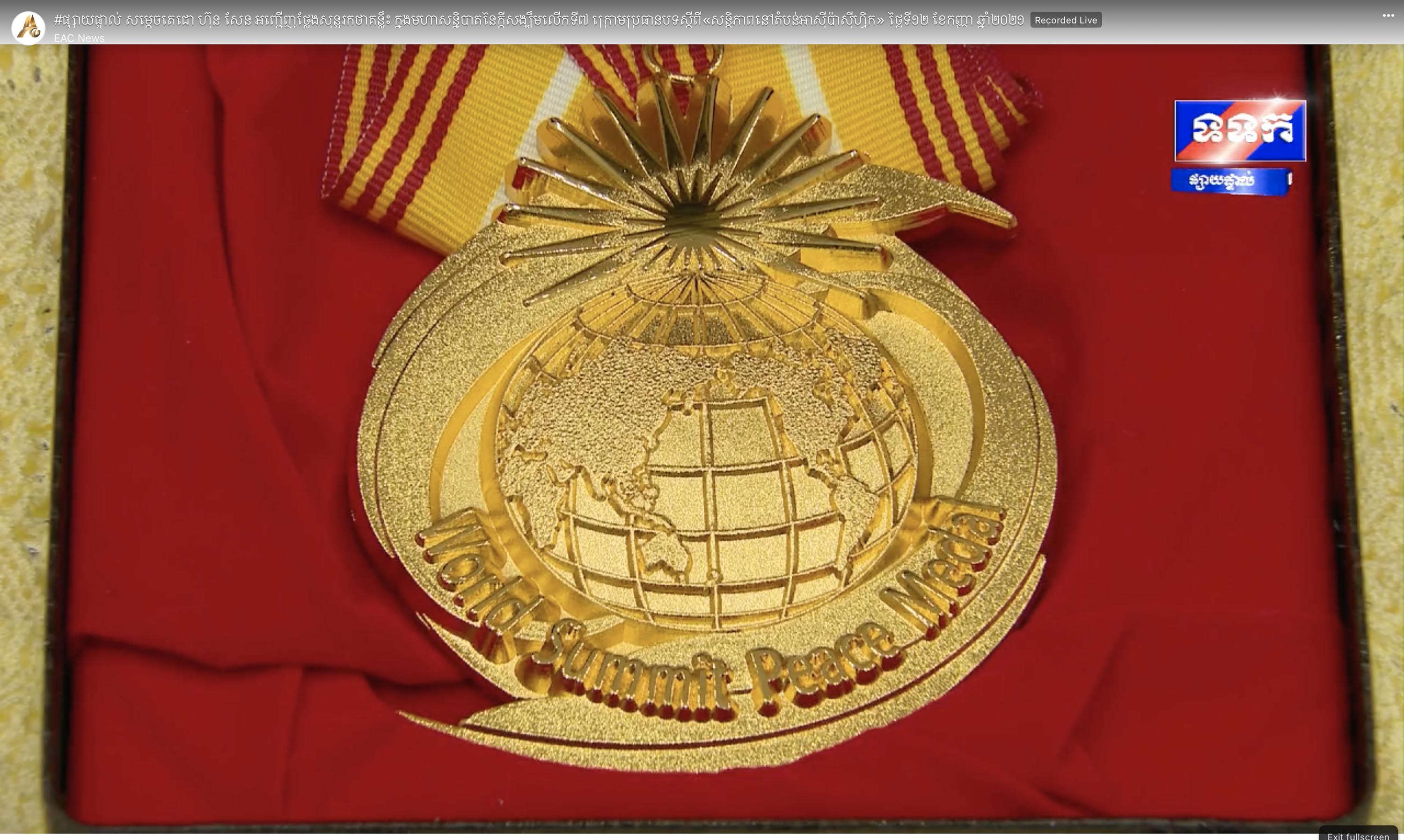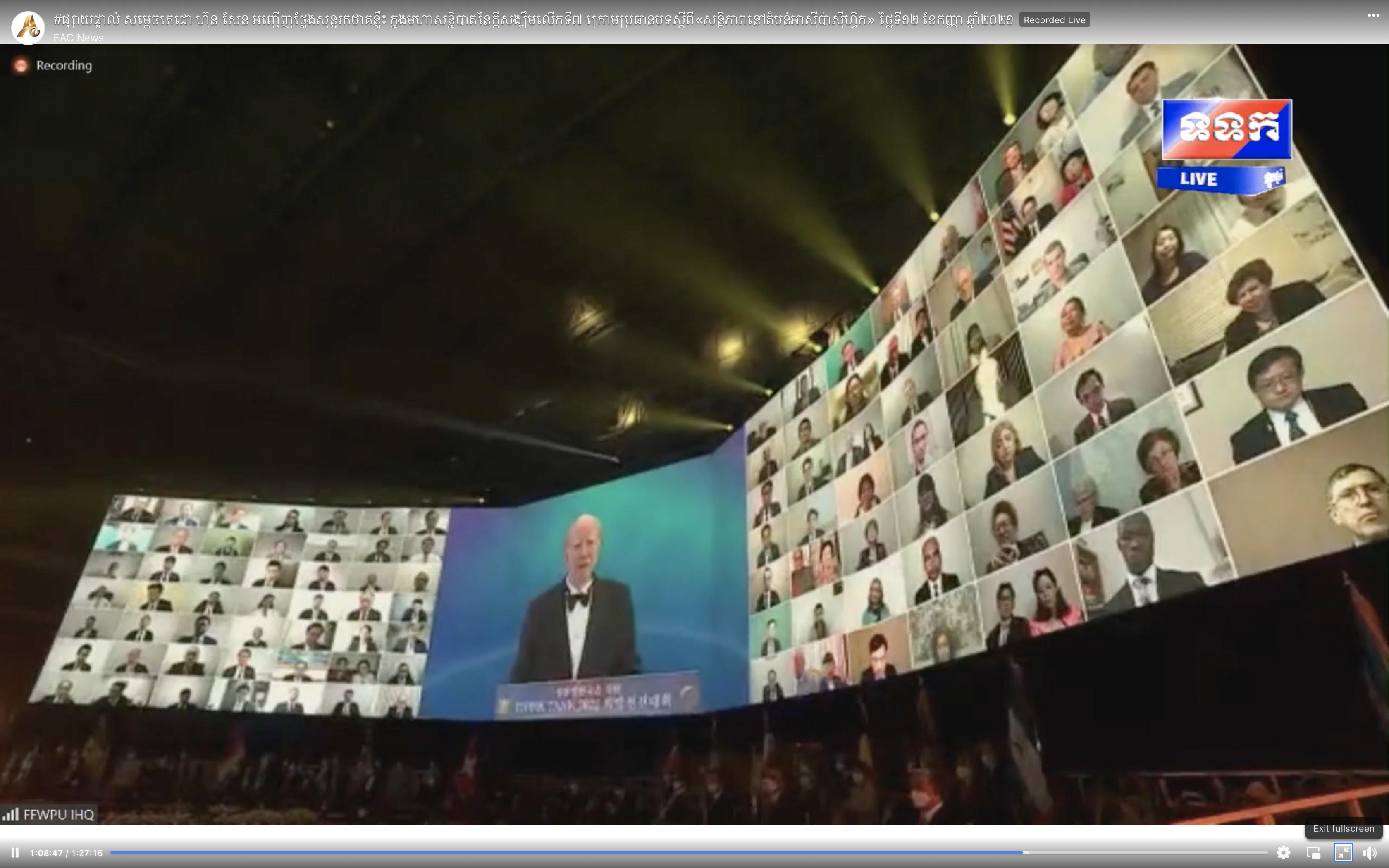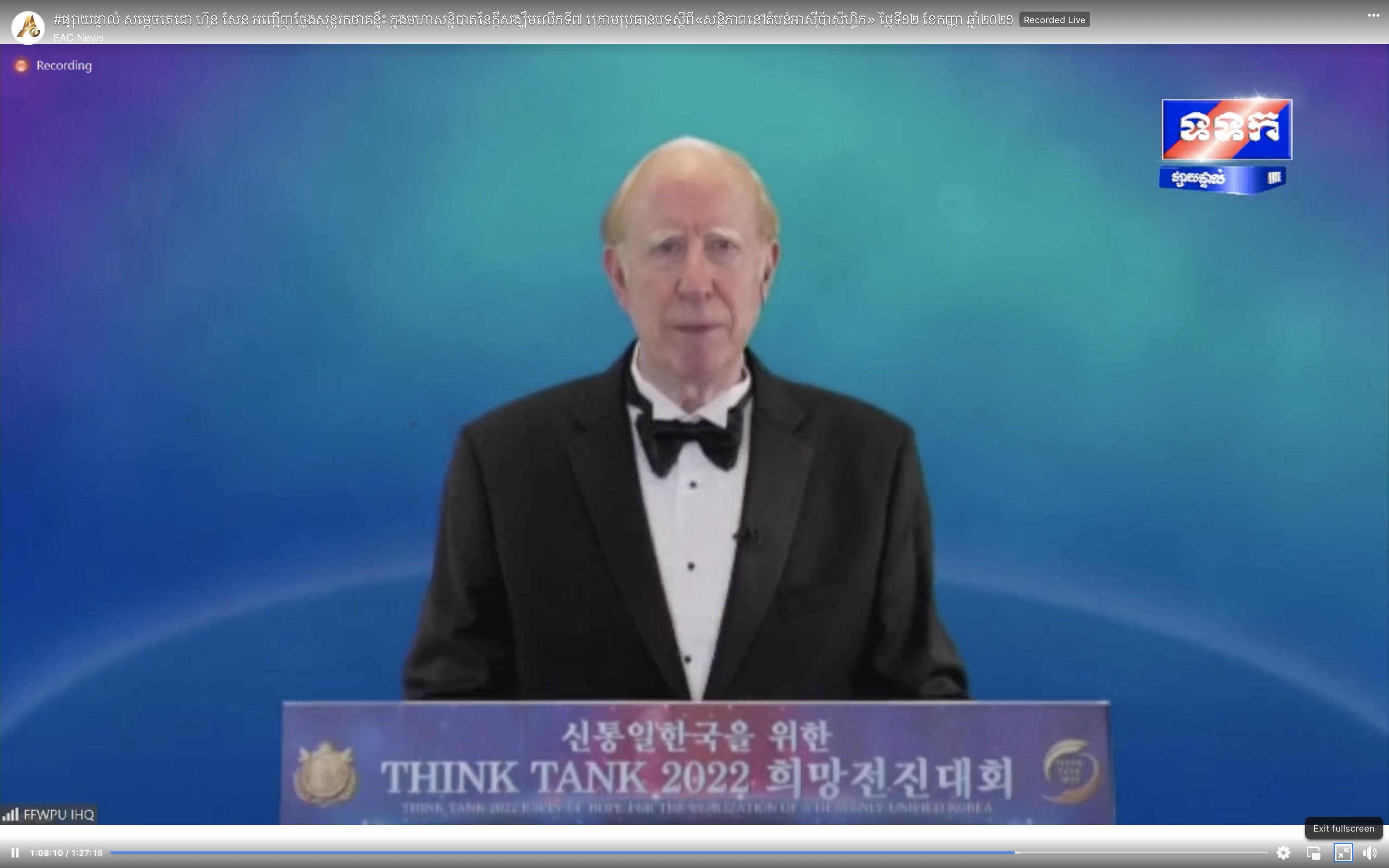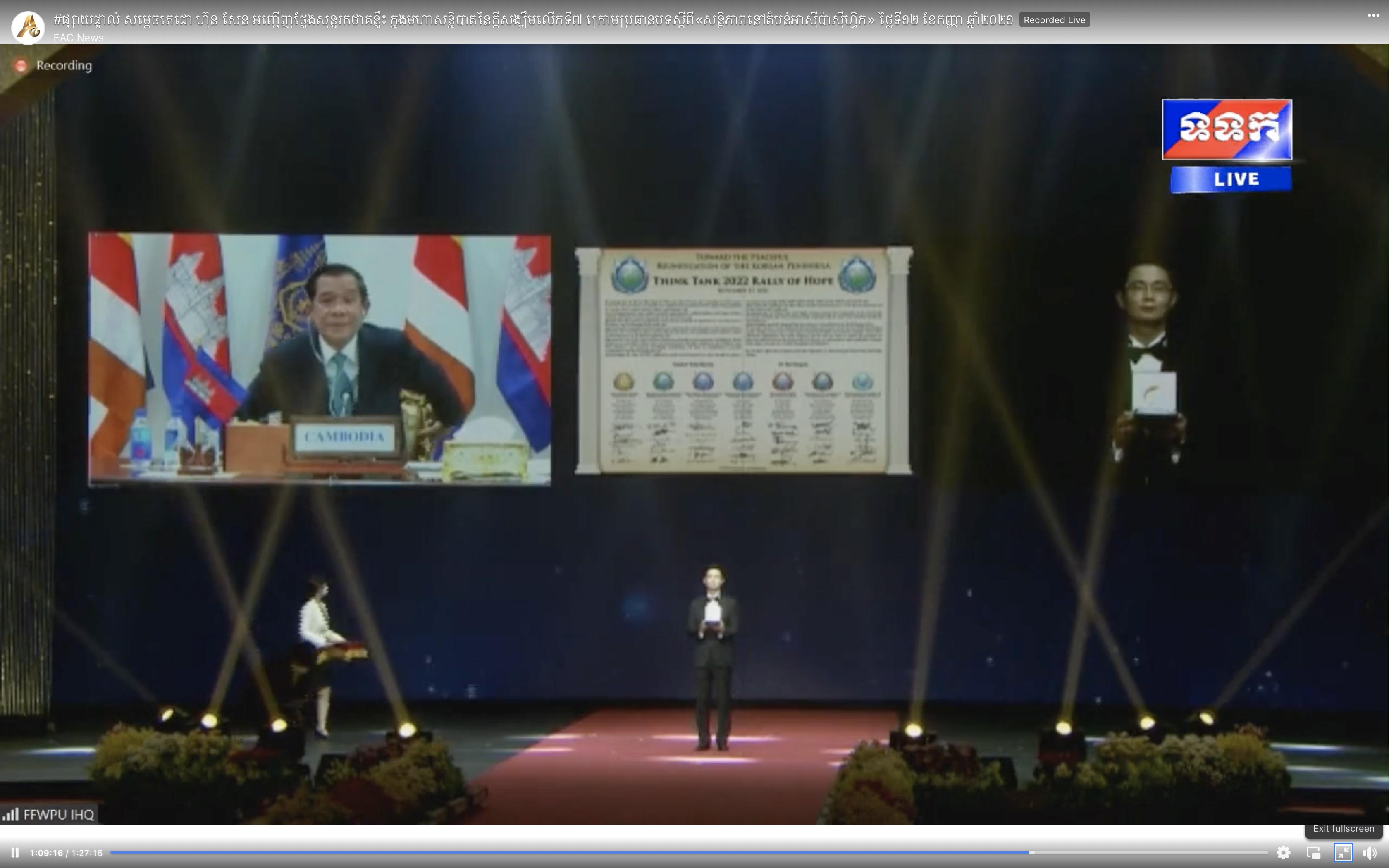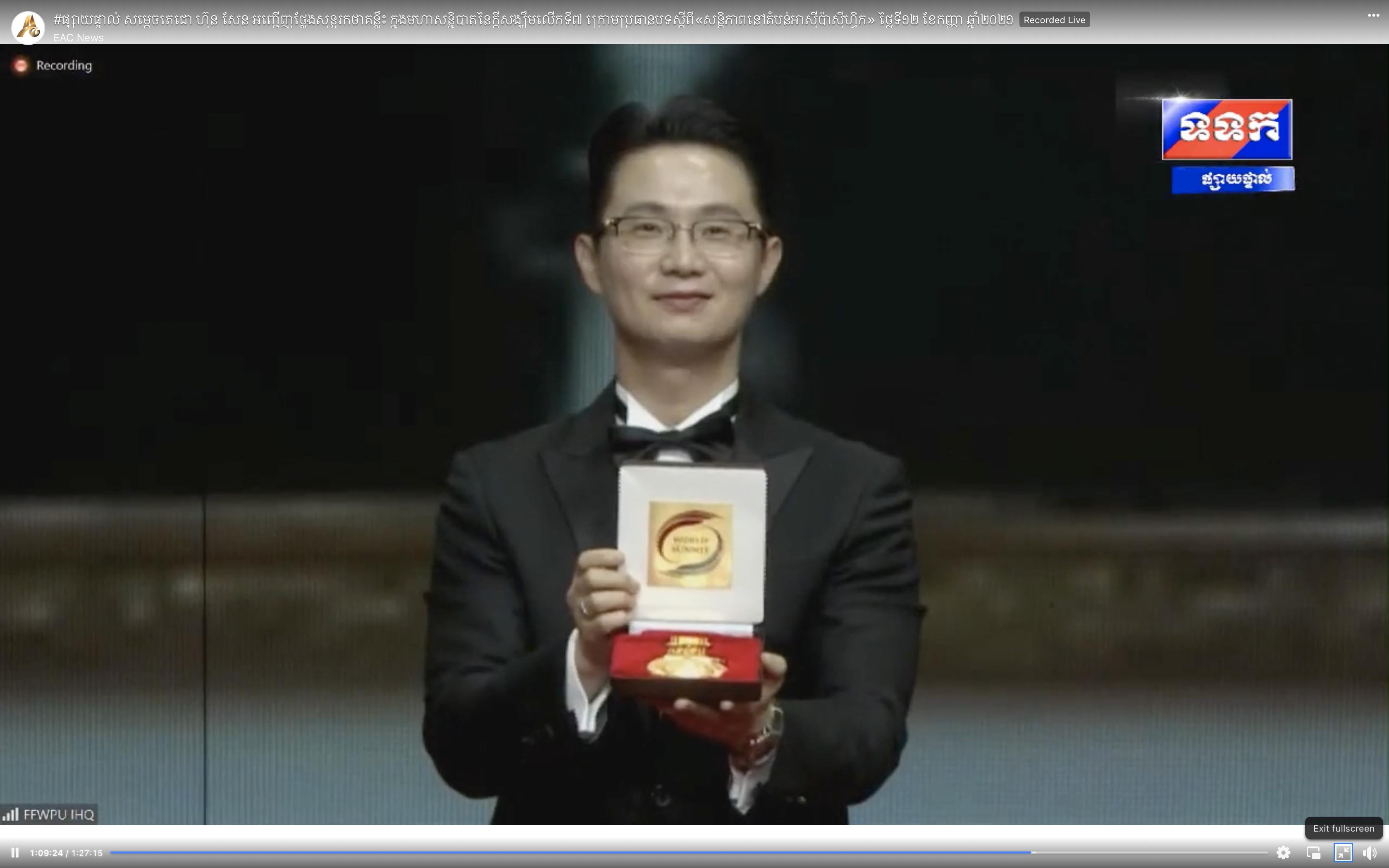BREAKING NEWS: PM Calls Recent Events in Afghanistan “Sad and Bitter” Reminder of Cambodia in April 1975
Phnom Penh: Prime Minister Hun Sen says the recent events in Afghanistan are a “grim and bitter reminder” of what happened in Cambodia on 17 April 1975, when the Khmer Rouge took over Phnom Penh. The Prime Minister was speaking at Sunday morning’s Think-Tank 2022. The annual event is in its seventh year and is organised by the Universal Peace Foundation. This year’s theme was “Peace in the Asia-Pacific".
In his remarks, the Prime Minister says Cambodia remembers the tragedy of 1975 and is determined to prevent such a similar event from happening again. He says, “Clearly, the geo-political landscape in the Asia-Pacific region is fast-changing with the shifts in global power and geo-political rivalries getting more complex and delicate with the utmost danger. Unfortunately, to some extent, geopolitical fault lines have been re-drawn, which could render the tendencies for atypical disruptions, i.e. small states being under mounting pressure to choose sides against their will and interest.”
He went onto say that, “Learning from the practical experiences unfolding from the political development in Afghanistan and elsewhere, we vividly understand that peace and nation-building can only be achieved by local stakeholders in the country itself. Other countries cannot perform the roles of those stakeholders in achieving these objectives. In this regard, I would like to emphasize that "national ownership" is the key to success and sustained peace. In other words, other countries cannot transplant political values and systems upon any other country, as these fundamentals need to be indigenously developed corresponding to the political, economic, social and cultural contexts of each individual country.”
The Prime Minister says Cambodia is an example of a model for others to draw experience from, pointing out that the kingdom’s own peace was built from the participation of all relevant parties in the country. He emphasised that in the early 1990s, peace could not be achieved by the international community, even after spending around $2 billion on peacekeeping operations and the peace process itself.
He says the country’s protracted war ended in December 1998, only when “Cambodia was able to achieve full peace through the implementation of the Win-Win policy” and finding a political solution within itself. He added,
“In this regard, I re-emphasize that we must have "national ownership" in peace-building and nation-building in the post-conflict period”.
In his address, the Prime Minister went onto say that he was proud that the Asian Vision Institute (AVI), based in Cambodia, was chosen to serve as the Asia-Pacific Secretariat of “Think-Tank 2022". He says he believes that think-tanks have an important role in crisis-resolution and promoting peacekeeping activities through “in-depth analysis and cultivation of the spirit of exchanging views and dialogue”. He says that realism with a “constructive spirit and avoidance of extremism” should be prioritised, as should the promotion of the principle of mutual understanding and the valuing of diversity in “seeking and maintaining peace, particularly ensuring inclusive development for humankind”.
The Prime Minister received a medal from the Universal Peace Foundation. This year’s speakers also included the co-founder of the Foundation, Hak Ja Han Moon and former US President Donald Trump.
